child
A child is a human being under the age of 18. That’s the legal definition; however, you can use this word for other people and things.
- Ronnie is a four-year-old child.
- Our neighbors have one child in their household.
- The children like to play in the park. (The word “children” is the plural form for “child.”)
- Jennifer is 41 years old, but sometimes she acts like a child.
- This computer program is the brainchild of a famous artist. (brainchild = an ingenius new idea or product)
- He’s a very childish person. (childish = an adjective for a person who acts in a manner that is similar to that of a child.)
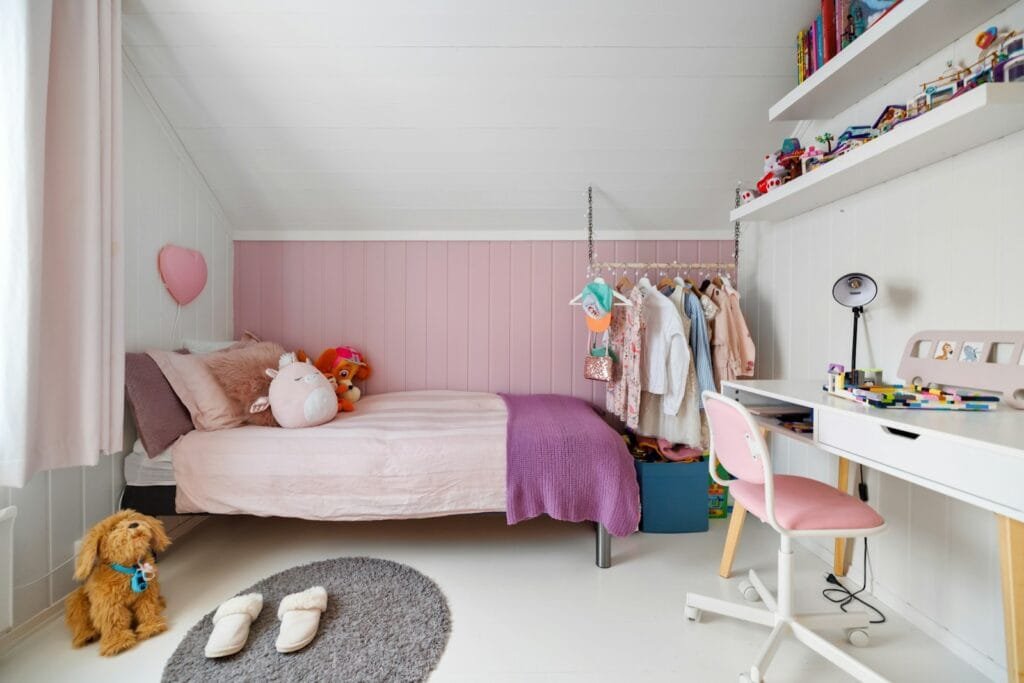
This is a child’s bedroom.
a. child = young person
A child is a very young person, male or female, who needs supervision and care. Once a child enters the teenage years, the word “child” is less often applied; however, by law in most places, a child is anyone under the age of 18.
- Whose child is that?
- What a good child she is!
- Do remember your life as a child?
- Did you have a good childhood? (childhood = the time of being a child)
- Elementary school teachers work with children. (children = plural for “child.”)
- Walter and Rosalie hope to have a child after they get married.
- He’s acting like a child. (This is said when an adult behaves in an immature manner.)
- This exercise is child’s play. (This is an expression for an activity that is very easy.)
a. child = young person
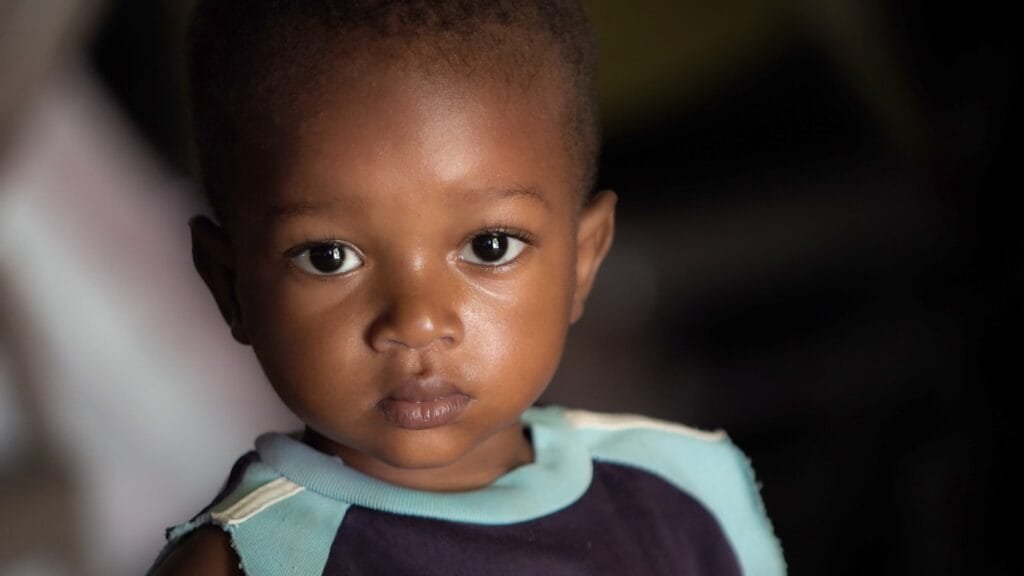
- He’s only a child. (Use “only” to emphasize the young age of a child.)
- He can’t take care of himself yet. He’s only a child.
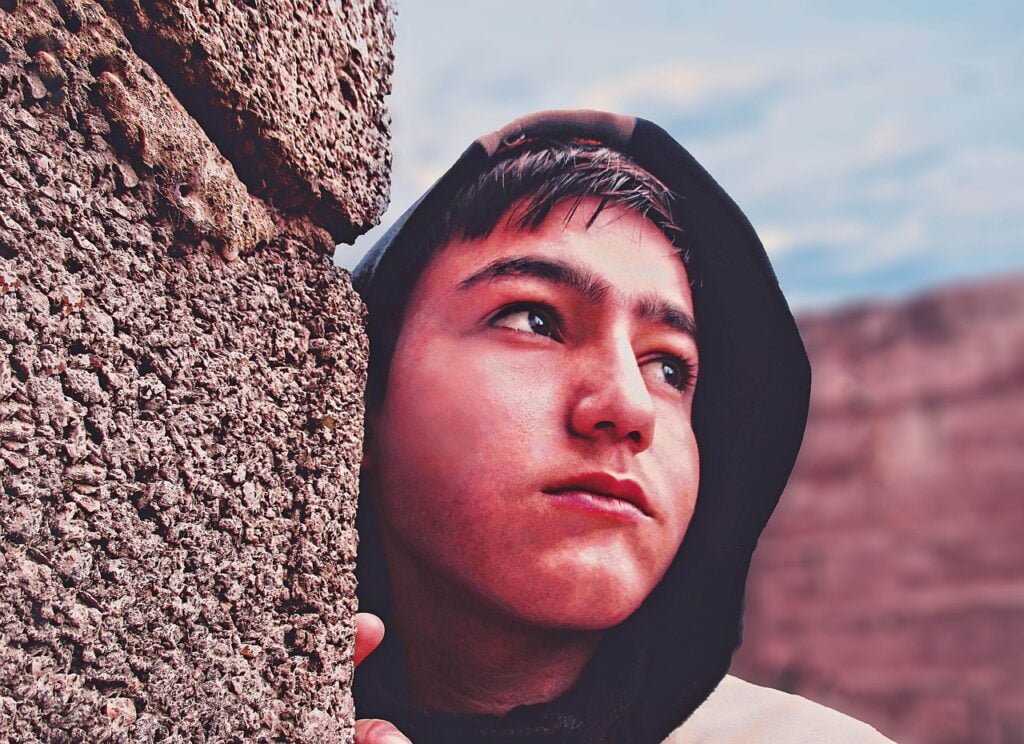
- He’s no longer a child, but sometimes he acts like one.
- His behavior is childish. (like that of a child)
b. child / children
The word “children” is an irregular noun form for “child.” The only time an “s” is used with “children” is for the possessive form.
- Children go to this playground to play.
- It’s a children’s playground. (Note: the apostrophe goes before the “s” despite the plural form.)
- When children reach the age of four or five, they begin school.
- There are many children in this neighborhood under the age of ten.
- Would you like to have children in the future?
- It’s a big responsibility to have children.
- For those who are fortunate enough, the best time of their lives was when they were children.
b. child / children
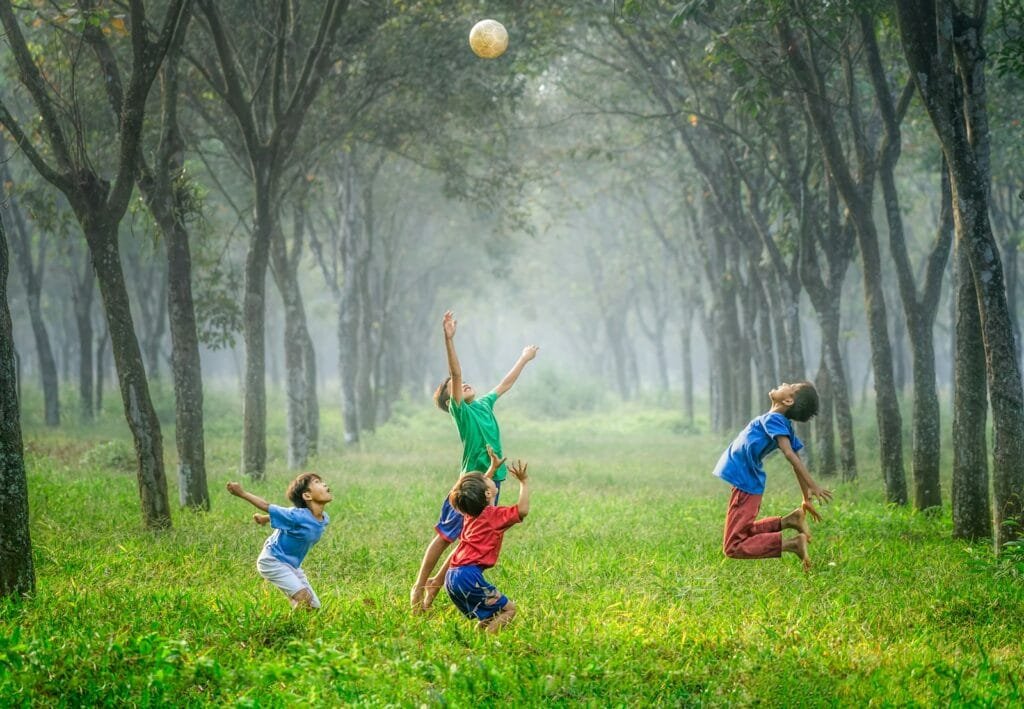
- Children like to have fun.
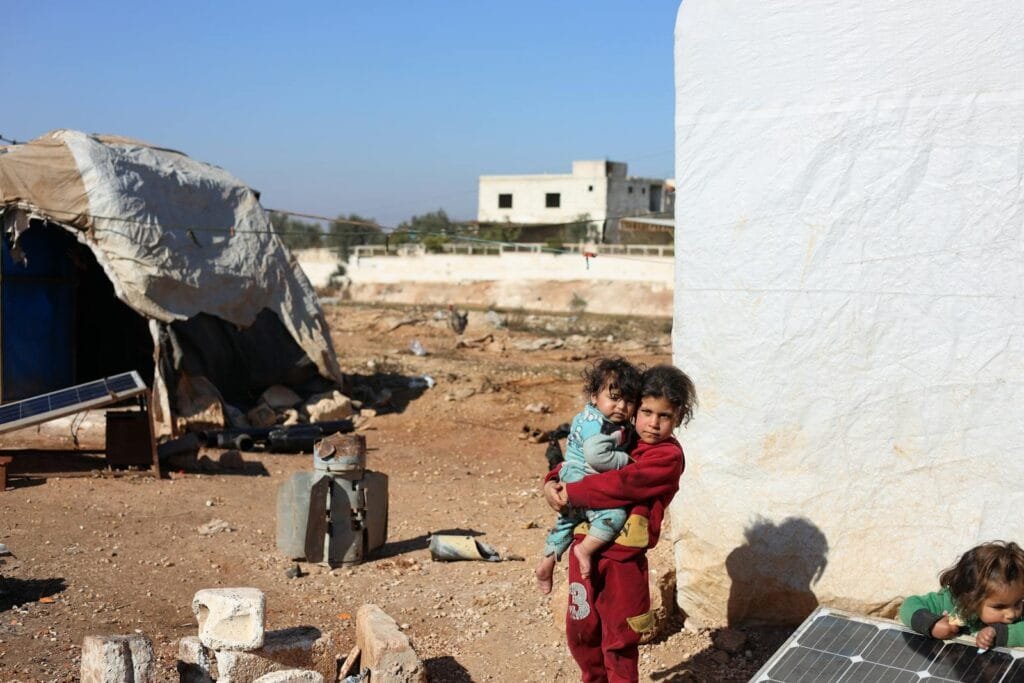
- Many children around the world are refugees who need help and protection.
c. compound nouns
There are many compound nouns that include the word “child.”
- A person who takes care of children under the age of five is a child care worker.
- People who work in child care need a lot of support.
- Child development is an interesting field of study.
- When I was in college, I took a course in children’s literature.
- The problem of child abuse occurs in homes where another person mistreats a child.
- Child abuse is a domestic problem.
- A parent who relieves himself or herself of the responsibility of raising a child might have to pay child support.
- Yusuf’s father pays child support to his mother now that his parents are divorced.
c. compound nouns

- People who study child development understand the importance of providing new learning experiences to children.

- People who work in the area of child care have to know how to take care of a baby.
